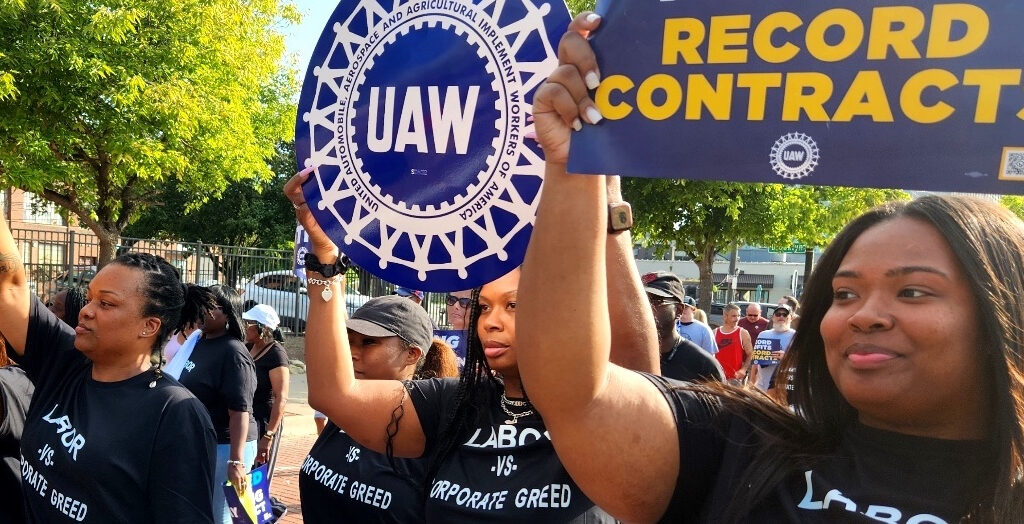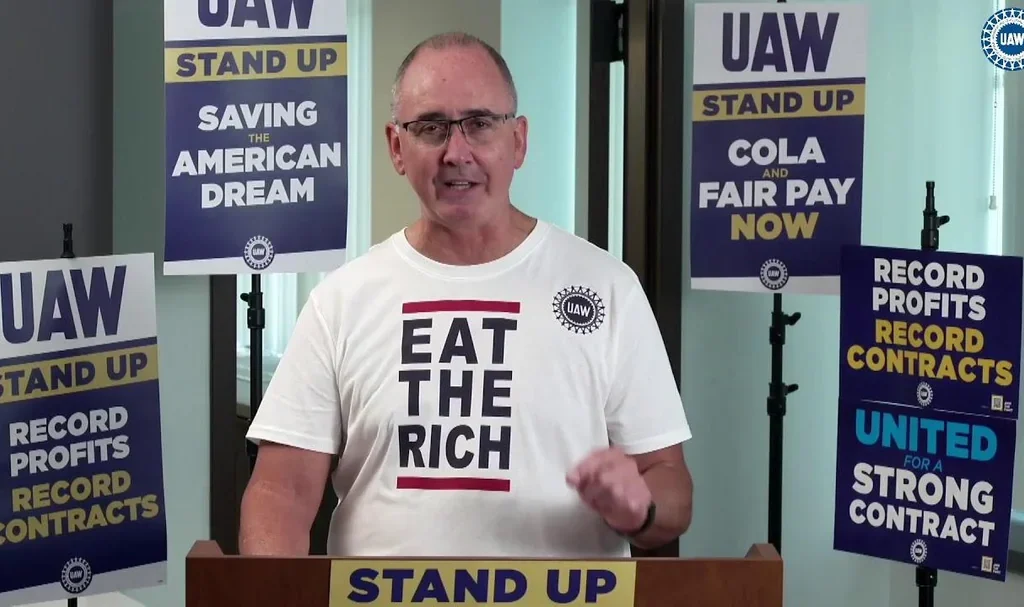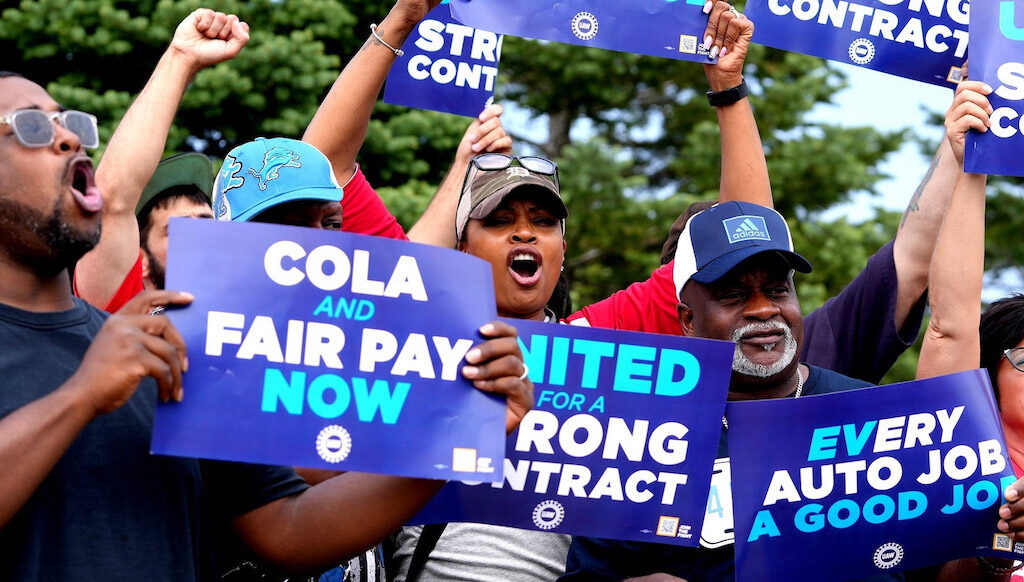
WHAT IS MAY DAY 2028?
The call for a May Day 2028 collective contract deadline might be just the push the labor movement needs to survive, grow, and build power at this moment. It could revive the time-honored tradition of using strikes to check tyrannical depredations of powerful employers, uphold the fundamental right to collectively bargain, and demand a democratic say in the workplace and society.

“If we’re going to truly take on the billionaire class and rebuild the economy so that it starts to work for the benefit of the many and not the few,” UAW president Shawn Fain said on Facebook Live, “then it’s important that we not only strike, but that we strike together.”
The May Day tradition began in Chicago in 1886, when workers organized mass protests to win an eight-hour workday, facing off against powerful employers and their hired guns.
The call for a May Day 2028 collective contract deadline might be just the push the labor movement needs to survive and grow in tough times. By lining up our contracts and backing each other up, we can increase all our leverage to win bigger demands, build our strike muscle, and practice powerful cross-union solidarity. We can revive the time-honored tradition of using strikes to check the tyranny of powerful employers, uphold the fundamental right to collectively bargain, and demand a democratic say in the workplace and society. We can make organized labor a force to be reckoned with.

What makes this different from other calls for mass strikes? It’s coming from one of the most powerful unions in the country, backed by a militant strike in 2023.
As Fain argued in 2024, “to reshape the economy into one that works for the benefit of everyone — not just the wealthy — we need to reclaim our country’s history of militant trade unions that united workers across race, gender and nationality.” By coordinating our strategies and actions, we can increase our leverage and spread workers’ power across the country – and across our unions.

how will it work?
Labor Notes writer Dan DiMaggio outlined one possible scenario:
What if a bunch of unions say they’re all going to walk out on May 1, 2028, unless their employers offer record contracts to make up for years of runaway inequality?
What if they align some of their demands—like demands for an end to forced overtime, and for the restoration of the eight-hour day? Or, hell, for workers to share in the gains of productivity with a 32-hour week at 40 hours’ pay. Or for a return to real pensions.
What if newly unionized workers fighting for first contracts join them?
Not only could it push the employers, it would also put some big pressure on politicians, in a presidential election year, to back solutions that help working people.
And this doesn’t have to be a single-day or even single-month event. The California Teachers Association has contract expirations on June 1, 2028. The International Longshore and Warehouse Workers Union has a contract expiration for July 1, 2028. There’s leverage here, if we strategize together.